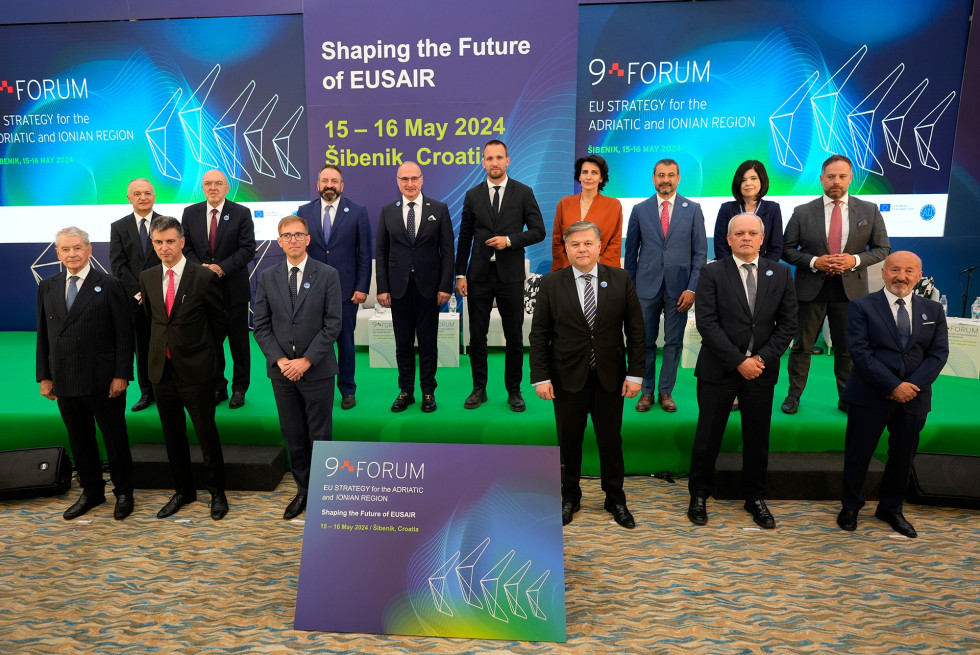State Secretary Koprivc takes part in ministerial meeting of the 9th EUSAIR Forum
State Secretary Koprivc took part in two events at ministerial level, i.e., the Adriatic Ionian Council/EUSAIR ministerial meeting, where he delivered remarks, and the high-level panel on post-2027 cohesion.
In his remarks, State Secretary Koprivc underscored that Slovenia, as an EUSAIR participating country, is an advocate of EU enlargement to the Western Balkans, supporting enlargement dialogue and reform process. He also stressed that Slovenia welcomes the efforts of the Strategy, the Presidency and the Facility Point to make young people part of the EUSAIR in a more structured way, through the establishment of the EUSAIR Youth Council. As regards the Strategy’s new, fifth Pillar on Improved Social Cohesion, he said that Slovenia supports work in areas such as youth employment, entrepreneurship, skills development and social innovation for active ageing. State Secretary Koprivc ended his remarks by reflecting on the future of cohesion policy beyond 2027. In this context, he underlined that Slovenia welcomes the initiative of the European Commission’s Directorate-General for Regional and Urban Policy for the macro-regional strategies to take an active role in the debate on the future of cohesion policy, an exercise to which Slovenia itself intends to make an active and constructive contribution.
The 2024 edition of the EUSAIR Forum takes place at an important time. On the one hand, Croatia is finishing EUSAIR Presidency, which is an excellent opportunity to take stock of the issues, projects and challenges that are common to the countries in the Adriatic and Ionian region. At the same time, the debate on the post-2027 cohesion policy is in full swing and stakeholders are reviving the process of the Western Balkans EU integration after years of stagnation.
The EUSAIR is one of the EU’s four macro-regional strategies. It aims to promote economic and social prosperity and growth in the region by improving its attractiveness, competitiveness and connectivity. The Strategy covers Croatia, Greece, Italy, Slovenia, Albania, Bosnia and Herzegovina, Montenegro, Serbia, North Macedonia and San Marino.


